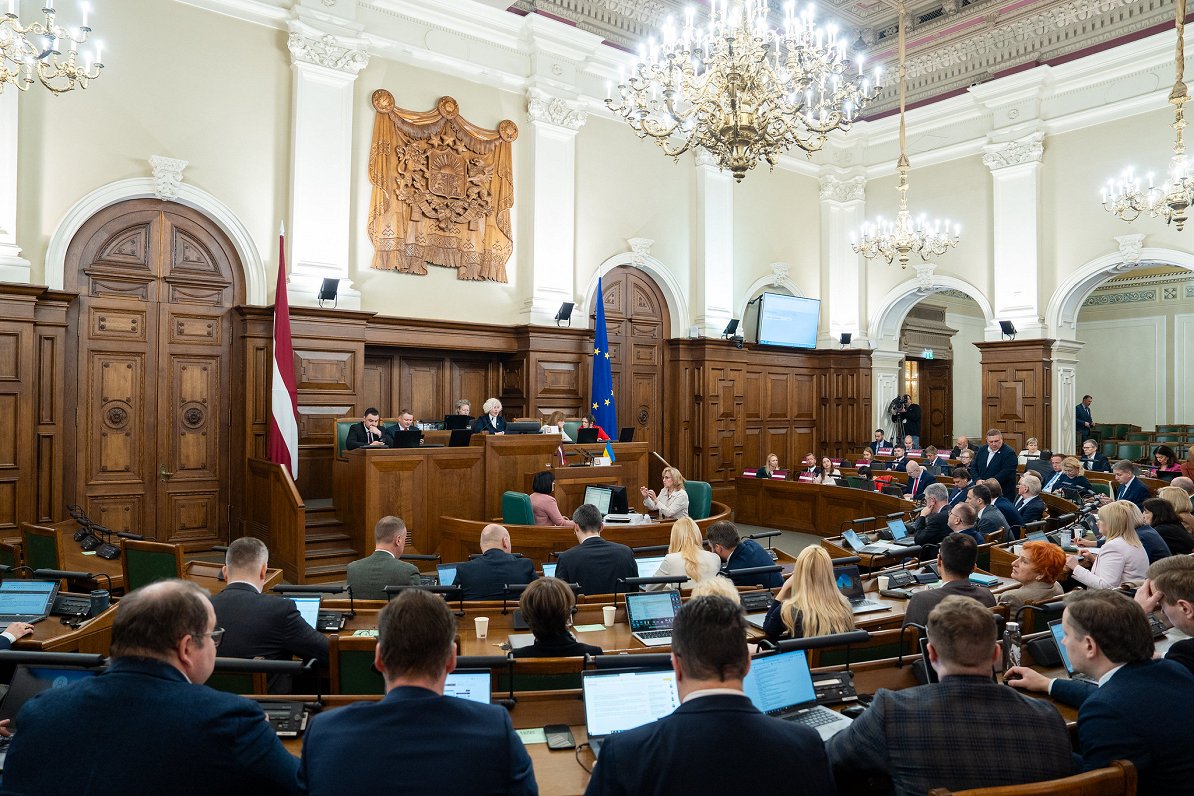The bill requires a third and final reading before it passes into law.
“Compared to the time 20 years ago, when Latvia joined this convention, the security situation in the Baltic region has changed significantly. Russia’s aggression in Ukraine has clearly shown that the aggressor does not respect the territorial borders of sovereign states and international law, including the principles enshrined in the Charter of the United Nations (UN), the draft law states. Taking into account the dynamics of the security situation, it is essential for Latvia not to limit its flexibility of action and to use various weapons systems and solutions to strengthen deterrence and ensure the protection of the country and its citizens,” said the Saeima account of the bill.
Estonia, Lithuania, Poland and Finland have all announced similar moves as a result of Russia’s clear disregard for international borders and the grav threat it poses to regional and global security.
Minister of Defence Andris Sprūds and Minister of Foreign Affairs Baiba Braže have both previously stressed the importance of coordination between the countries of the region and communication with international partners.
Responding to questions from members of parliament at a joint meeting of the responsible committees, a representative of the National Armed Forces stated that the withdrawal would enable the use of additional resources to more effectively deter a potential adversary and hinder its movement in the case of an attack.
Latvia joined the convention in 2005 and has since fulfilled its obligations and has not produced, stockpiled, transferred or used unguided anti-personnel mines. Moreover, the country had already completed the destruction of all unguided anti-personnel mines in its stockpile in 2010, the draft law states.
Latvia is bound by several international treaties in the field of international humanitarian law and human rights. Consequently, the potential use of anti-personnel mines in the future will be permissible only in accordance with binding international law, the annotations to the draft law emphasize.
The draft law requires the Ministry of Foreign Affairs to send a withdrawal document, indicating the reasons for withdrawal, to the convention’s member states, the UN Secretary-General and the Security Council. The withdrawal of membership will take effect six months after the UN has received the relevant documents.
The final reading of the bill is likely to take place within a matter of weeks at most.
The Ottawa Convention was signed in 1997 at the end of the Cold War. The Ottawa Convention has been ratified by 164 countries, including all NATO member states – except the USA. Latvia acceded to the Ottawa Convention by adopting the Law of 19 May 2005 “On the Convention on the Prohibition of the Use, Stockpiling and Production of Anti-Personnel Mines and on their Destruction”.
The Ottawa Convention stipulates that the signatory states undertake never and under any circumstances to use anti-personnel mines; not to develop, produce, otherwise acquire, stockpile, retain or transfer, directly or indirectly, anti-personnel mines; not to assist, support or incite anyone in any way to engage in activities prohibited by any State Party under this Convention.
Membership in the Convention cannot be suspended – it can only be withdrawn. Such a decision is made by the Saeima (parliament) under the terms of the Latvian constitution.
Select text and press Ctrl+Enter to send a suggested correction to the editor
Select text and press Report a mistake to send a suggested correction to the editor
Tell us about a mistake
